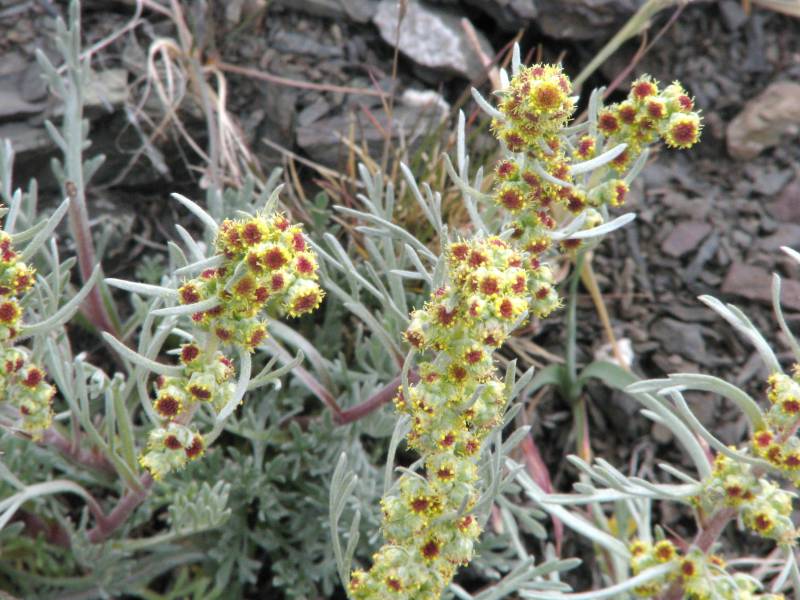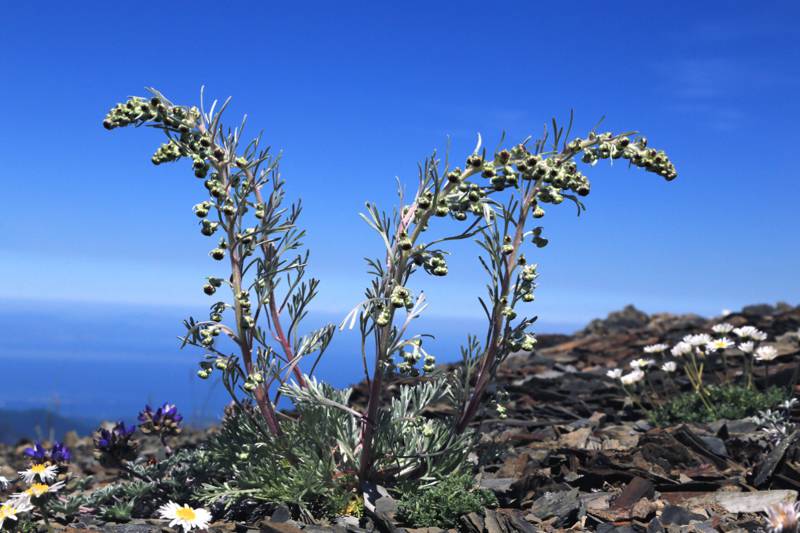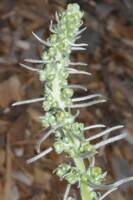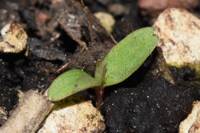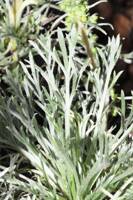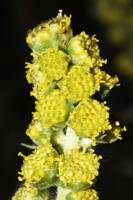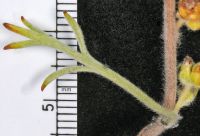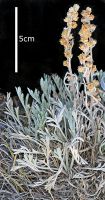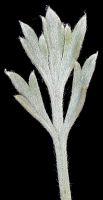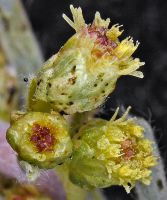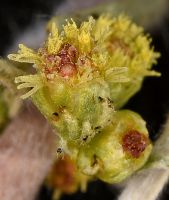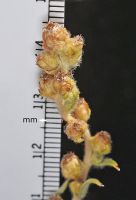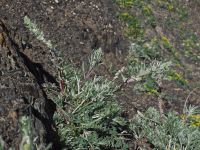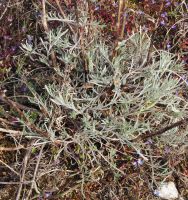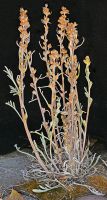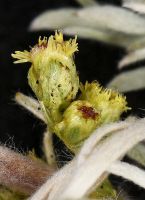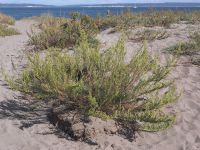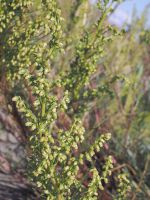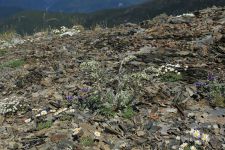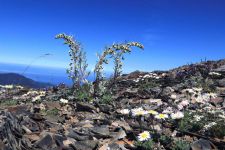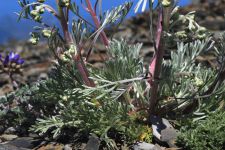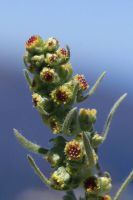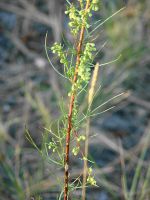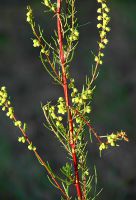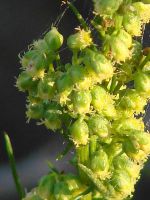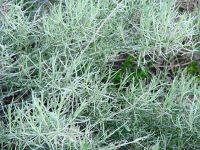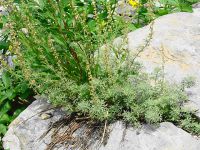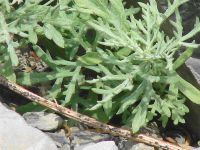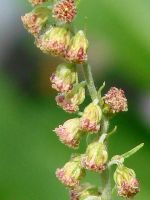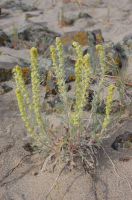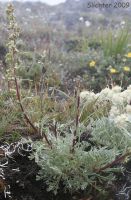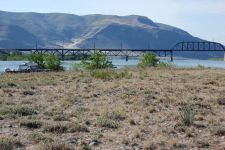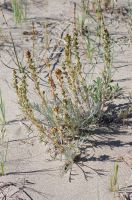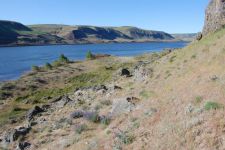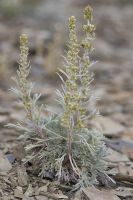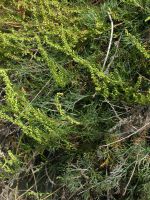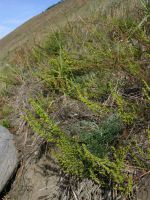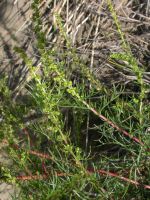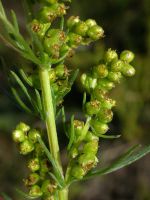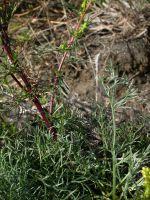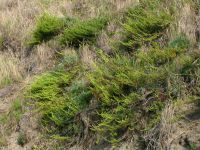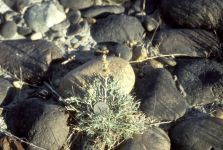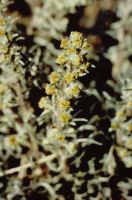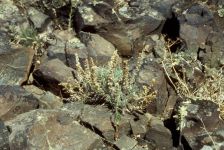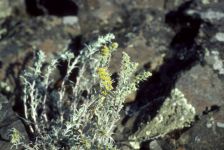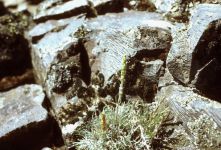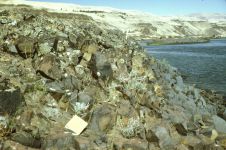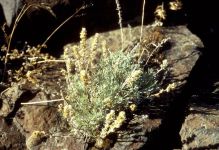Distribution: Occurring on both sides of the Cascades crest in Washington; Alaska to California, east across most of North America to the Atlantic Coast; also in Eurasia.
Habitat: Open places, often in sandy or rocky soil, from low elevations to alpine.
Flowers: July-September
Origin: Native
Growth Duration: Biennial, Perennial
Conservation Status: Not of concern
Pollination: Wind
Scarcely odorous, biennial or perennial from a taproot, 1-10 dm. tall, highly variable.
Leaves of the basal rosettes crowded, 2-10 cm. long including the petiole, and 0.7-4 cm. wide, 2-3 times pinnatifid or ternate, with linear or linear-filiform divisions up to 2 mm. wide, glabrous to silky-hairy, persistent or deciduous; cauline leaves similar but less divided, the uppermost ternate or simple.
Inflorescence small and spike-like to diffuse and panicle-like; involucre glabrous to densely woolly, 2-4.5 mm. high; corollas all tubular, yellowish, the outer pistillate and fertile, the inner sterile with abortive ovary; receptacle naked; pappus none.
Achenes glabrous.
Publication: Sp. Pl. 2: 846. 1753.
-
var. borealis – northern wormwood
 Occurring west of the Cascades crest in the Olympic Mountains in Washington; Alaska to Washington, east to the Rocky Mountains, disjunct in California.
Occurring west of the Cascades crest in the Olympic Mountains in Washington; Alaska to Washington, east to the Rocky Mountains, disjunct in California. -
var. scouleriana – Pacific sagewort, Scouler's wormwood
 Occurring on both sides of the Cascades crest in Washington; Alaska to California, east to the Great Plains.
Occurring on both sides of the Cascades crest in Washington; Alaska to California, east to the Great Plains. -
var. wormskioldii – Columbia Islands sagewort, Wormskiold's wormwood sagewort
 Occurring east of the Cascades crest in Washington, where endemic to the Columbia River Basin in south-central Washington.
Occurring east of the Cascades crest in Washington, where endemic to the Columbia River Basin in south-central Washington.
PNW Herbaria: Specimen records of Artemisia campestris in the Consortium of Pacific Northwest Herbaria database
WA Flora Checklist: Artemisia campestris checklist entry
OregonFlora: Artemisia campestris information
E-Flora BC: Artemisia campestris atlas page
CalPhotos: Artemisia campestris photos

